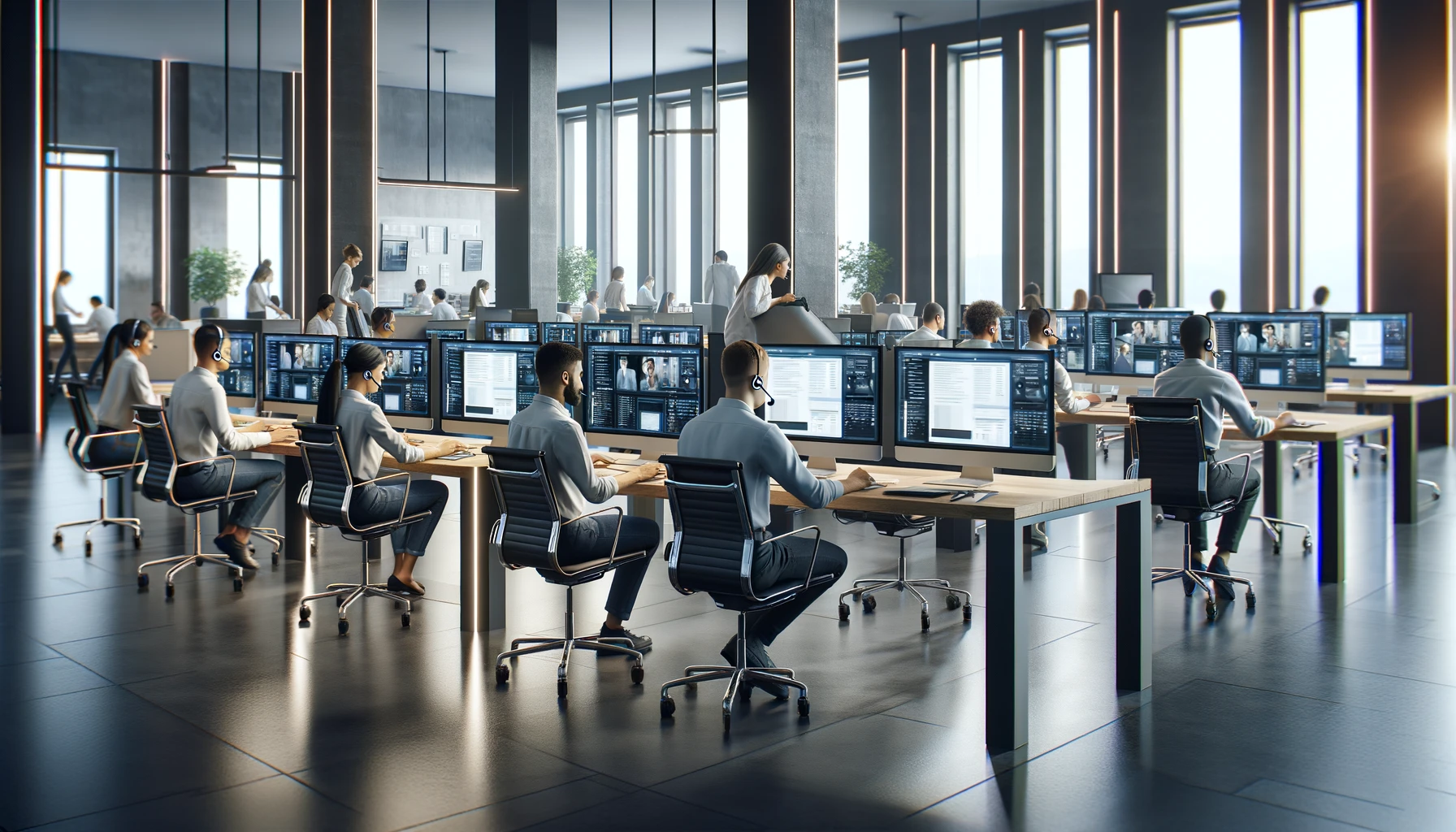
Content moderation has undergone significant transformations over the years. It evolved from a manual, labor-intensive process to a sophisticated operation driven by cutting-edge technology.
Initially, content moderation was largely reactive, with moderators manually sifting through content to enforce community guidelines and standards. This approach consumed an incredible amount of time for the individual moderators involved.
As digital platforms expanded, the sheer volume of user-generated content (UGC) made the traditional methods of content moderation unsustainable. In response, technology stepped in to enhance the efficiency and productivity of Content Moderators.
Maximizing Productivity with AI Tools
Advanced algorithms and artificial intelligence (AI) automate the detection and filtering of harmful or inappropriate content, accelerating response times. This allows human moderators to focus on more complex moderation tasks that require careful decision-making.
Machine learning models and natural language processing tools have further optimized the moderation workflow. These innovations reduce the workload on human moderators while minimizing their exposure to potentially harmful content.
With the ability to process higher volumes of content accurately and quickly, moderators can now work with greater accuracy and speed. Supportive tools and dashboards provide real-time data and analytics that help moderators make informed decisions quickly.
User Generated Content (UGC) and Mental Fatigue
As technological advancements have streamlined content moderation processes, there has been a parallel rise in the volume of user-generated content (UGC). This increase has introduced significant challenges for the mental health and wellbeing of moderators.
Moderators are often exposed to an overwhelming amount of content, some of which can be distressing or harmful. This constant exposure can lead to psychological strain, making their role more demanding.
Effective Strategies for Moderator Wellness
As the world becomes more digitized, the intensity of content that moderators handle can take a severe toll on their mental health. It is essential that organizations not only focus on the efficiency of content moderation but also on the psychological safety of the moderators.
Implementing strong psychological safety measures can make the difference. These strategies include:
- Comprehensive training for operational and emotional challenges
- Regular mental health check-ins
- Therapy access
- Stress management techniques
- Access to immediate psychological support both online and in-person.
These programs also help moderators handle the emotional demands of their jobs while contributing to overall job satisfaction and increased productivity.
Impact of Wellbeing on Productivity
Studies have shown that unwell employees significantly impact employers due to absenteeism and presenteeism—where employees show up but underperform due to illness.
Wellbeing programs boost morale and productivity. According to research, employees who feel their organization cares about their wellbeing are 4.4 times more likely to be engaged at work and 73% less likely to experience frequent burnout.
How Can We Balance Efficiency and Wellbeing?
A thoughtful approach is required to strike the right balance between efficiency and wellbeing in content moderation. Here are key strategies to achieve this:
-
Achieve Operational Excellence Without Compromising Wellbeing
In content moderation, enhancing productivity should not come at the cost of moderator safety and mental health.
The final goal is to create a moderation environment that prioritizes both efficiency and wellbeing to prevent employee burnout. This requires a strategic blend of technology, human-centered policies, and proactive wellness programs.
-
Use Technology While Ensuring Human Empathy
Utilizing advanced AI and deep learning tools helps reduce the burden on moderators by filtering large volumes of content.
However, AI solutions must be balanced with a human touch to address complex situations that require empathy, understanding, and meticulous judgment.
Training programs should focus on both operational efficiency and emotional intelligence, as well as coping strategies for dealing with distressing content.
-
Ensure Sustainable Practices for Long-Term Productivity
For sustainable productivity, organizations must consider the long-term effects of content moderation on employees and focus on key practices that prioritize their wellbeing. These include:
- Implementing regular rotations to prevent fatigue
- Creating opportunities for team interaction to build support networks
- Ensuring transparent communication about the challenges and expectations associated with content moderation roles
The Path Forward
As AI-driven tools continue to transform content moderation, finding a balance between efficiency and safety is vital.
We can create a more sustainable, efficient environment for Content Moderators if we prioritize mental health, implement wellness programs, and leverage advanced technology to reduce manual labor.
This balanced approach ensures that productivity enhancements in content moderation go hand-in-hand with robust support systems, ultimately leading to a healthier workplace environment and a more effective moderation process.
